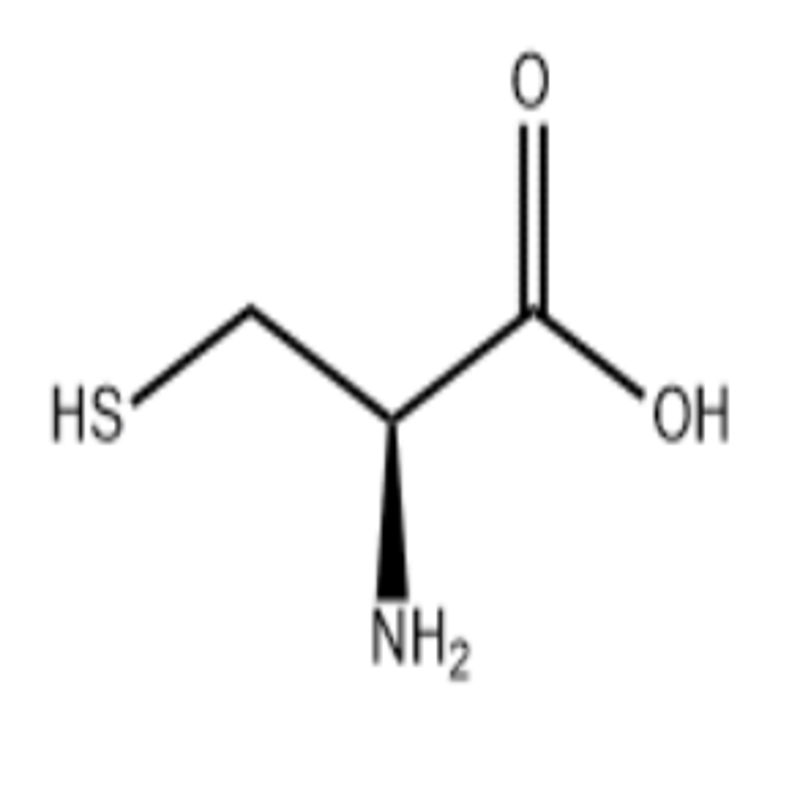-
Categories
-
Pharmaceutical Intermediates
-
Active Pharmaceutical Ingredients
-
Food Additives
- Industrial Coatings
- Agrochemicals
- Dyes and Pigments
- Surfactant
- Flavors and Fragrances
- Chemical Reagents
- Catalyst and Auxiliary
- Natural Products
- Inorganic Chemistry
-
Organic Chemistry
-
Biochemical Engineering
- Analytical Chemistry
- Cosmetic Ingredient
-
Pharmaceutical Intermediates
Promotion
ECHEMI Mall
Wholesale
Weekly Price
Exhibition
News
-
Trade Service
On April 21, 2022, the Ministry of Food and Drug Safety (MFDS) of South Korea issued a message saying: To celebrate the 60th anniversary of the promulgation of the "Food Sanitation Law" in South Korea, the Ministry of Food and Drugs of South Korea introduced the history of changes in the "Food Sanitation Law".
It contains the history of Korean food safety policy and the development of the food industry
.
The Korean government promulgated and implemented the Food Sanitation Act in 1962 to strengthen food safety management at the national level, recognizing that food safety is critical to public health
.
The original law included food standards and specifications, a ban on the sale of dangerous foods, and a ban on false labelling
.
Since then, the Food Sanitation Law has been revised several times to improve the level of food safety, including strengthening the responsibility of business owners and expanding consumer participation, achieving both quality and quantity growth
.
In particular, while in line with international standards, the regulatory requirements directly related to public safety have been strengthened, and the changes in the food production and distribution environment have been revised to improve the applicability of regulations
.
FoodPartners.
com has sorted out the contents of South Korea's Food Sanitation Law and its related food safety policies over the past 60 years, in order to provide assistance to enterprises exporting to South Korea
.
It contains the history of Korean food safety policy and the development of the food industry
.
The Korean government promulgated and implemented the Food Sanitation Act in 1962 to strengthen food safety management at the national level, recognizing that food safety is critical to public health
.
The original law included food standards and specifications, a ban on the sale of dangerous foods, and a ban on false labelling
.
Since then, the Food Sanitation Law has been revised several times to improve the level of food safety, including strengthening the responsibility of business owners and expanding consumer participation, achieving both quality and quantity growth
.
In particular, while in line with international standards, the regulatory requirements directly related to public safety have been strengthened, and the changes in the food production and distribution environment have been revised to improve the applicability of regulations
.
FoodPartners.
com has sorted out the contents of South Korea's Food Sanitation Law and its related food safety policies over the past 60 years, in order to provide assistance to enterprises exporting to South Korea
.
1.
Major revisions of South Korea’s food safety policies in different periods
Major revisions of South Korea’s food safety policies in different periods
① 1960s: The primitive period of food hygiene
After the end of the "6.
25 War", the lives of the Korean people were difficult, and the level of food hygiene awareness in the food industry was extremely low
.
In 1962, after the "Food Sanitation Law" was promulgated and implemented, the case of "six companies in Busan producing canned saury with empty cans discarded by the US military base" was recorded as the first violation of South Korea's "Food Sanitation Law" (South Korea East Asia).
Daily News, May 19, 1962)
.
25 War", the lives of the Korean people were difficult, and the level of food hygiene awareness in the food industry was extremely low
.
In 1962, after the "Food Sanitation Law" was promulgated and implemented, the case of "six companies in Busan producing canned saury with empty cans discarded by the US military base" was recorded as the first violation of South Korea's "Food Sanitation Law" (South Korea East Asia).
Daily News, May 19, 1962)
.
② 1970s: Laying the foundation for international-level food safety management
10 years after the promulgation of the Food Sanitation Act, the Korean government joined the Codex Alimentarius Commission (CODEX) and introduced the "Superior Food Designation Regulations: SF (Superior Food) Food" in the food safety management system
.
.
③ 1980s: Strengthening the responsibility of food operators
In order to cooperate with the 1988 Seoul Olympic Games, the government first comprehensively revised the "Food Sanitation Law" (October 8, 1985) to strengthen the responsibility of operators and improve the level of food hygiene
.
.
Newly set up self-quality inspection obligations, introduce operator compliance requirements, introduce a food hygiene team system, designate private inspection institutions as food hygiene inspection institutions, introduce a hygiene grade system for catering service establishments, and introduce an advance hygiene training system,
etc.
etc.
④ 1998: The Food and Drug Safety Administration responsible for food safety was established
With the establishment of the World Trade Organization (WTO) (1995) and Korea's accession to the Organization for Economic Cooperation and Development (OECD) (1996), the Korean government has strengthened the professionalism of its food safety management functions
.
.
Therefore, in 1998, the Food and Drug Administration (KFDA) was established to be responsible for the food business, and a preventive management system, the Food Safety Management Certification Criteria (HACCP) system, was introduced
.
.
In addition, new voluntary recall regulations have been introduced, requiring operators to self-recall problematic products when they suspect a hygiene risk or quality defect
.
.
⑤ 21st Century: Food Safety Policy Shifts to Consumer-Centered
With the rising national income level and the public's attention to food safety in South Korea, food safety policy has shifted from enterprise-centric to consumer-centric
.
.
Therefore, in order to quickly respond to food poisoning incidents, the Korean government clarified the definition of food poisoning and stipulated the obligation of food companies to report to doctors when food poisoning occurs (2003)
.
.
In addition, in order to achieve food safety together with consumers, the Korean government has newly established a "Consumer Hygiene Sampling Application System" and a "Foreign Object Reporting System for Food, etc.
"
.
"
.
At the same time, the "Food Sanitation Law" has been comprehensively revised, and the main revisions are "unlawful profit recovery system (for operators who obtain economic benefits from the sale of dangerous food, etc.
, a fine of the retail price of relevant food, etc.
is imposed)" and " The import and sale of toxic and hazardous substances such as melamine are prohibited when detected," to strengthen penalties
.
(February 6, 2009)
, a fine of the retail price of relevant food, etc.
is imposed)" and " The import and sale of toxic and hazardous substances such as melamine are prohibited when detected," to strengthen penalties
.
(February 6, 2009)
As the public's attention to health increases, the health food market has become active.
In order to evaluate the safety and functionality of healthy functional foods and manage the order of circulation, the "Law on Health Functional Foods" has been formulated
.
In order to evaluate the safety and functionality of healthy functional foods and manage the order of circulation, the "Law on Health Functional Foods" has been formulated
.
In addition, the "Special Law on the Safety Management of Children's Diet and Life" (March 31, 2008) was formulated to provide children with safe and nutritious food and lay the foundation for professional food safety management
.
.
⑥ 2010s: The era of globalization, emphasizing the management of imported food safety
Since the signing of the Free Trade Agreement (FTA) between countries (2014), Korea's food import volume has increased.
In order to strengthen the importer's sense of responsibility for imported food and ensure the safety of imported food, Korea has revised the law and established the Inspection order system (2011), importing food declaration agency system, on-site inspection system for overseas production enterprises (2013)
.
In order to strengthen the importer's sense of responsibility for imported food and ensure the safety of imported food, Korea has revised the law and established the Inspection order system (2011), importing food declaration agency system, on-site inspection system for overseas production enterprises (2013)
.
At the same time, in order to cope with the rapid growth of imports and strengthen the safety management system of imported food, South Korea enacted the "Special Law on Imported Food Safety Management" (February 2, 2015) by integrating the relevant provisions of imported food scattered in various laws
.
.
In addition, in order to provide accurate information to the public and prohibit operators from carrying out inappropriate labeling and advertising, South Korea enacted the Law on Labeling and Advertising of Food, etc.
(March 13, 2018)
.
(March 13, 2018)
.
2.
Important regulatory amendments to strengthen corporate food safety management capabilities in South Korea
Important regulatory amendments to strengthen corporate food safety management capabilities in South Korea
South Korea has been implementing food hygiene policies and strengthening the supervision of operators.
The policy direction of improving the food safety management capabilities of enterprises based on autonomy and responsibility has been reflected in the Food Hygiene Law
.
The policy direction of improving the food safety management capabilities of enterprises based on autonomy and responsibility has been reflected in the Food Hygiene Law
.
Major revisions include: ▲Transition from the food business license system to the reporting system (1999)*▲The use of food trucks to cook and sell food (2014) Those who operate multiple dim sum shops are allowed to use the same kitchen together (2019) ▲Introduce quality self-inspection and re-inspection system to prevent damage to the enterprise (2021),
etc.
etc.
* Business license: licensing system (1962) → declaration system (1999) → registration system for food production and processing industries (2012)
.
.
In particular, in order to alleviate the economic hardships of businesses caused by the COVID-19 pandemic, outdoor operations of restaurants are allowed (2020), and shared kitchens can be legally operated
.
.
summary:
At present, South Korea pays great attention to the safety of domestic food and imported food, and has strengthened the supervision of food and food enterprises through various methods such as revising regulations.
FoodPartners.
com compiled articles on the interpretation of South Korea's food safety regulations and policies for more than half a century, which can provide help to enterprises exporting to South Korea, and facilitate Chinese enterprises exporting to South Korea to have a clearer and more in-depth understanding of South Korea's food safety management and other related content
.
FoodPartners.
com compiled articles on the interpretation of South Korea's food safety regulations and policies for more than half a century, which can provide help to enterprises exporting to South Korea, and facilitate Chinese enterprises exporting to South Korea to have a clearer and more in-depth understanding of South Korea's food safety management and other related content
.







